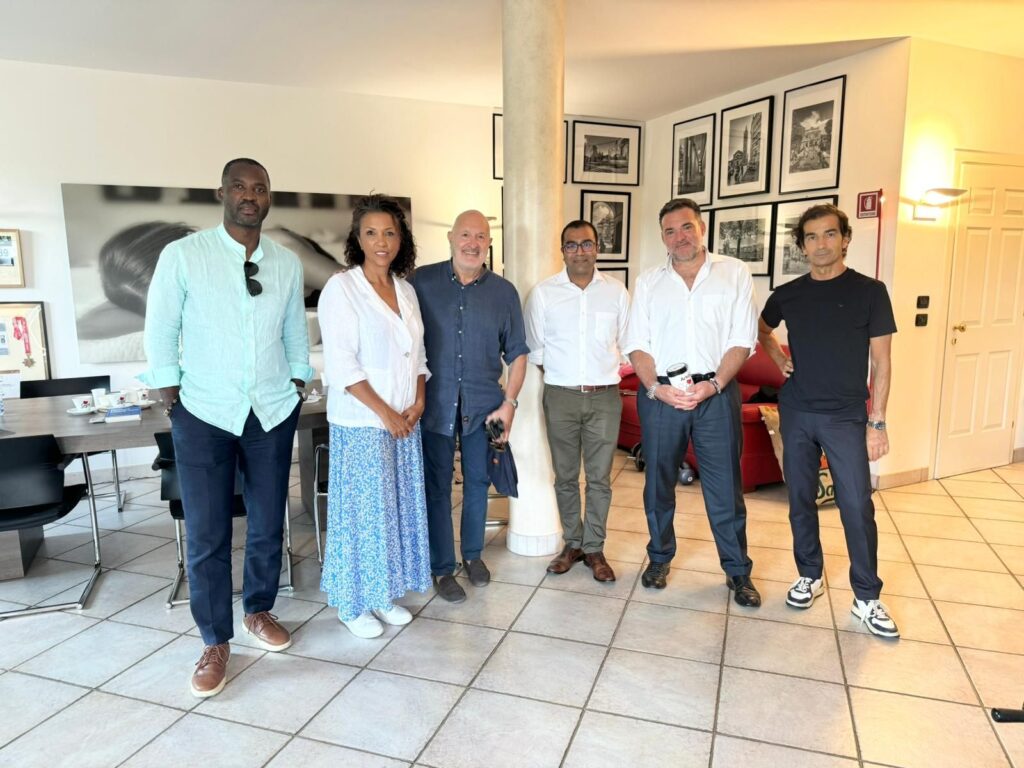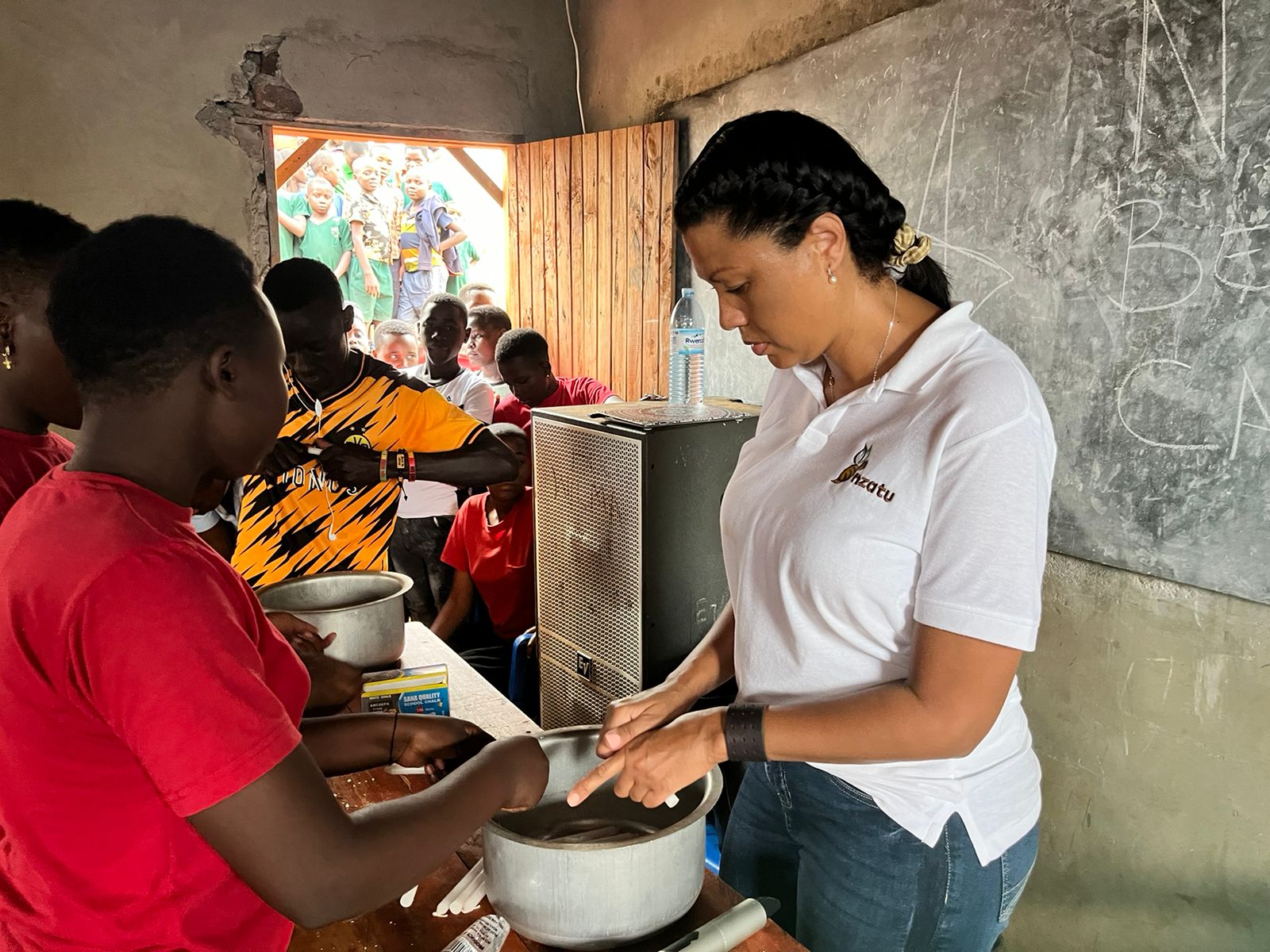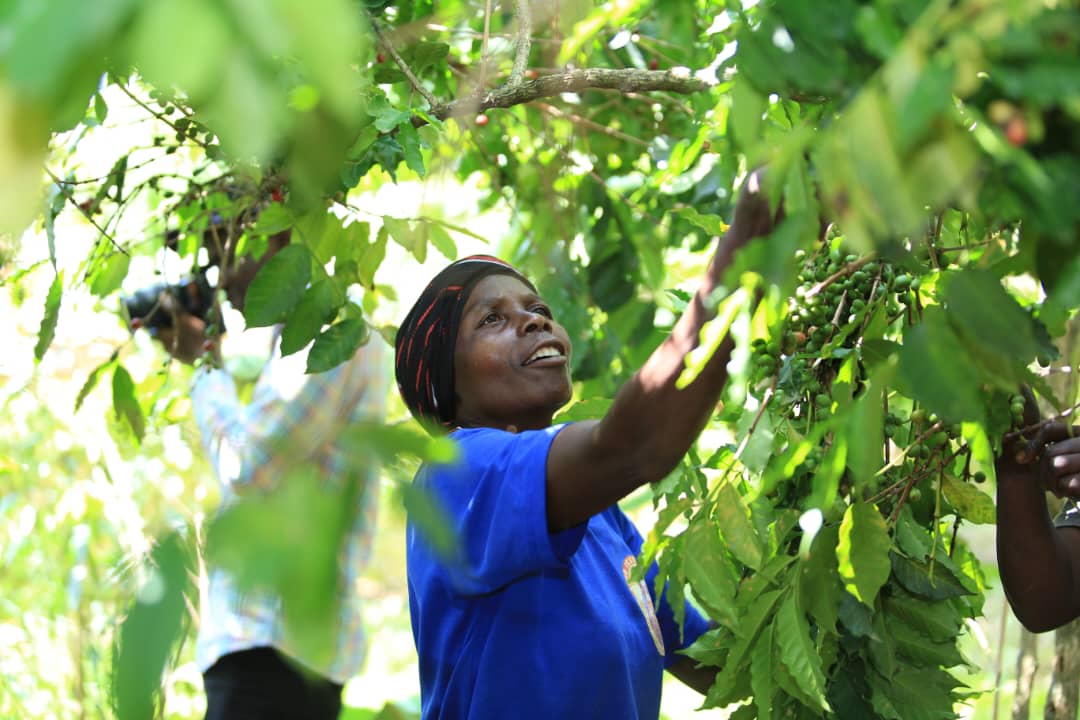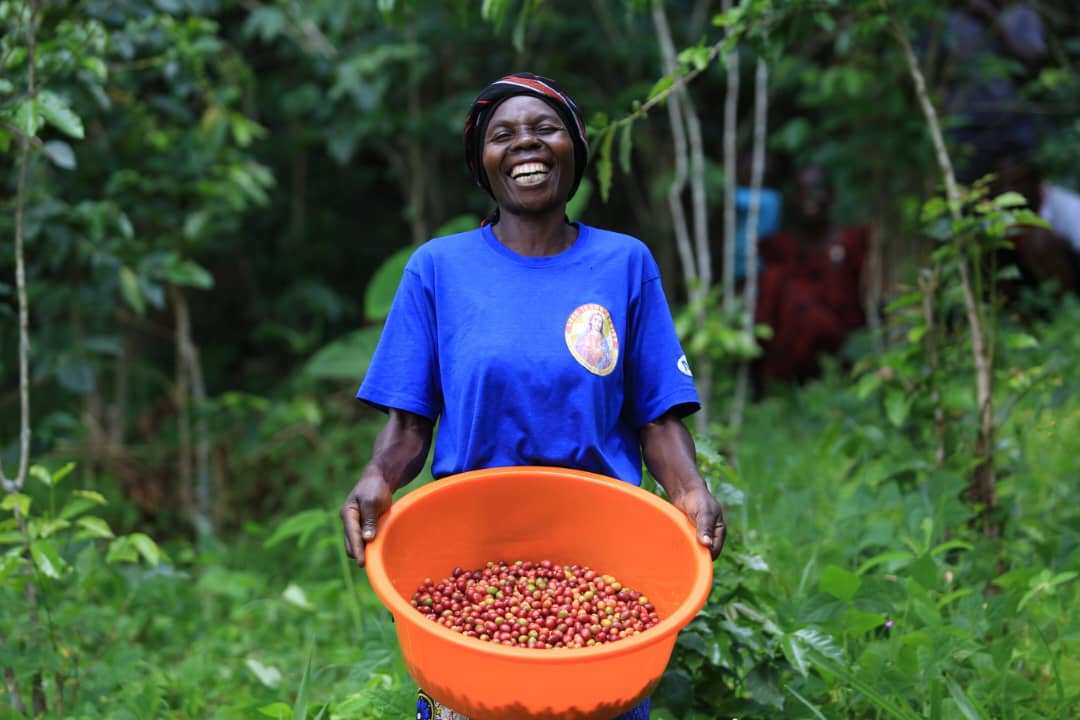A new model for regenerative agriculture is brewing in Africa.
What started “in a very informal manner,” with two sisters from rural Zambia teaching smallholder farmers how to keep bees and grow different crops together, is now a globally distributed food business helping thousands of farmers across 15 countries in Africa.
Nzatu calls itself an “impact company” and aims to create a sustainable long-term economy for African farmers by providing them with market access and better prices for their products. Nzatu’s clients buy directly from the farmers instead of going through “big traders.”
Starting with honey and intercropping a few row crops, the company has now launched a coffee product that’s being distributed in the US and Europe.
But for Jones and the rest of the team, regenerative agriculture and Nzatu are about much more than coffee, cash, and international trading.
“We are there to bring a more harmonious social, economic and environmental, holistic experience to our communities and our consumers,” she tells AgFunderNews.

‘This is a direct driver for economic enhancement’
Nzatu works with smallholder farmers across Africa; training for these farmers covers everything from implementing regenerative agriculture practices on their land to soil health advisory and linkage to domestic and export markets.
Much like an intercropping operation, Nzatu’s regen ag model is made up of several components working in tandem to achieve healthy benefits for people, plants, and pocketbooks.
Despite the recent expansion of the business, beekeeping remains a major part of the strategy as a way for farmers to add extra income to their operations; beekeeping activities can produce a 20-fold income return for smallholders, who can earn $3 per kilogram on honey, says Jones. By contrast, maize (aka corn), a staple crop in much of Africa, provides just 20 cents per kilogram and can only be harvested once per year.
“If you look at the cumulative effects economically, you will see that this is a direct driver for economic enhancement for smallholder farmers, and they can continue [beekeeping] with their other crops,” she says.
Nzatu’s aim is that some of those other crops will be indigenous grains such as millet and sorghum, which can fix nitrogen in the soil and have a higher nutritional content than maize.
Maize “has only 3% nutrient density, whereas sorghum, millet, the leguminous crops, offer on average 27% nutrition,” says Jones. This could go towards addressing the rampant malnutrition on the continent.
That said, Jones recognizes that there is some farmer resistance to transitioning away from maize, which accounts for roughly 30% of all caloric intake in Sub-Saharan Africa and is the most important crop on the continent.
Because of that, education about ancient grains is an especially important aspect of the Nzatu model. “We create recipe days where we teach them how to use our peas to make flour [and other] products. You can even make plant-based sausages with cowpeas and different beverages with roots.”
The beekeeping and grain growing are intercropped with cash crops such as coffee, cashew and cocoa.
“But we don’t stop there,” says Jones. “We also promote wildlife conservation and bring in awareness and education on different species that are endangered and help to reduce human and wildlife conflict. It’s not just about selling coffee and cocoa. It’s not just about trading.”
Nzatu currently works with aggregators in 15 different African countries to aggregate, distribute and sell farmers’ products such as honey, wax, coffee, cocoa, grains and cashews.

Regenerative agriculture: more than a business
Michele Sofisti, CEO and cofounder of Nzatu’s Europe arm, describes Nzatu’s model as “a systemic approach where we see everything in the planet interconnected.” In other words, regenerative agriculture is not just about soil health or capturing carbon, as it’s sometimes viewed in western countries.
“That interconnectedness is vital from the point of view of livelihoods,” says Jones.
For example, she says, deforestation and poverty are closely linked because of the energy deficit in Africa and other developing nations.
“What are the other options for rural households? They cut down trees and they make charcoal, and this is the energy they use to make their meals. So energy poverty is directly correlated to climate change.
“Through the work we do, we come in and help to bring about the awareness that we cannot address climate change without addressing income. If a farmer has a better income, they can make better choices. Within Nzatu, by helping to create additional revenue streams, the farmers have choices.”
Similarly, farmers with additional revenue streams are less likely to do poaching, she adds. “We’re very totemic [in Africa], meaning that each clan has the symbolism of an animal they shouldn’t eat. It’s a very ancient way of wildlife conservation. However, with poverty, those totemic values have been dissipated, and survival becomes the priority.”
Providing additional revenue springs could “bring back those totemic values,” she says, and curb poaching in turn.
“In helping the communities, we are also helping wildlife conservation, and in doing agroforestry, we are helping the communities,” adds Sofisti. “The interconnection is so evident.”

International expansion
Most recently, Nzatu announced it would make its Njuki coffee available in the US.
Nzatu works with farmers in Africa before sending the raw coffee to Parma, Italy-based Artcafé, which roasts the coffee and manages distribution across Europe and Asia. A third party, US-based e-commerce operation Urban Afrique, handles North American distribution.
“On the packaging [of the coffee] we mention all our wildlife conservation partners and all the other parties [involved],” adds Sofisti. “For the final customer, that could be interesting to see [how] the coffee is impacting wildlife.”
As a specific example, Sofisti highlights one aggregator in Uganda that works with more than 3,000 farmers growing Robusta quality coffee and is linked with the Lawrence Anthony Earth Organization.
“This is the message we want to give consumers,” adds Jones. “We may not be able to change policy because we don’t hold the pen in our hand, but by making those choices in the grocery store, consumers can do their part in bringing about change.”
For more on emerging startups and initiatives in Africa, check out AgFunder’s Africa AgriFoodTech Investment Report 2024.





